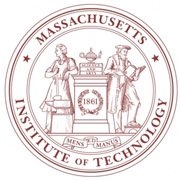News Archive 2019
School news from 2019.

INSIDE THE CLASSROOM
How to Stage a Revolution: History 21H.001
MIT history class explores the roots and complexities of revolutions across the globe. From early printing presses to changing fuel sources to the reach of global social media, the technological contexts of revolutions are intrinsic to understanding them.
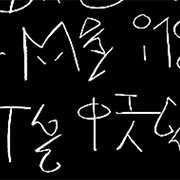
Transcript for the Audio Feature: Build Your Own Language
produced by Melanie Gonick, MIT News Office
Accompanies the audo feature: Build Your Own Language

CLIMATE
3Q with leading climate journalists Kendra Pierre-Louis SM'16 and Lisa Song SM'09
Insights on effective climate communications from two of the leading climate journalists in the U.S., both alumna of our Graduate Program in Science Writing
MIT SHASS welcomes Alex Edelman to campus
The Brookline native has brought home top prizes at Edinburgh Festival Fringe and Melbourne International Comedy Festival.
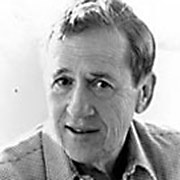
CELEBRATING SCHOLARSHIP
Celebrating Leo Marx on his 100th birthday
Over 40 years, the influential historian helped build MIT's Program in Science, Technology, and Society into a world leader in the field.
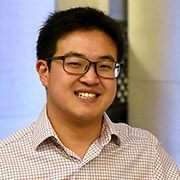
MEET OUR DOCTORAL STUDENTS
Meet Timothy Loh, doctoral student in the MIT HASTS program
“MIT is the best place to be an anthropologist studying issues of science and technology. It’s a place where we’re able to think deeply and critically about how scientific knowledge and authority is constructed."
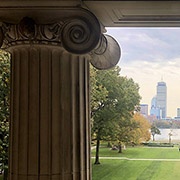
HONORS AND AWARDS
MIT ranked No.1 worldwide for Economics and Business for 2020
Times Higher Education awards top honors to fields in MIT SHASS and MIT Sloan for the second year in a row.
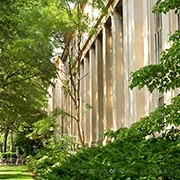
HONORS AND AWARDS
MIT ranked No.1 worldwide for the Social Science fields for 2020
“Our social structures, systems of governance, and means of communication demand crucial examination, both historically and predictively," says Dean Melissa Nobles. "MIT’s scholars make vital contributions to the social science fields, and also prepare students in both humanistic and technical programs to understand the larger context of the world in which they’re living.”
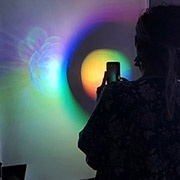
INSIDE THE CLASSROOM
The Technology of Enchantment
In a new Anthropology + Studio Art maker class, MIT students investigate the human dimensions of interacting with technologies.
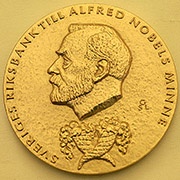
HONORS AND AWARDS
MIT economists Esther Duflo and Abhijit Banerjee win the Nobel Prize
Duflo and Banerjee, whose work has helped transform poverty alleviation, are co-winners of the 2019 Sveriges Riksbank Prize in Economic Sciences in Memory of Alfred Nobel, along with another co-winner, Harvard University economist Michael Kremer.
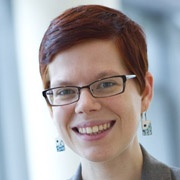
VOTING AND DEMOCRACY
3Q: Ariel White on the impact of incarceration on voting
"The story here is not just about whether people are legally allowed to vote, but about whether they are practically able to vote, whether they know they're allowed to vote, and whether they think they have any reason to do so."
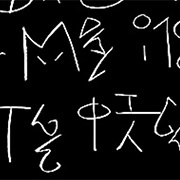
INSIDE THE CLASSROOM
How to Construct a Language | Linguistics 24.917
MIT students are inventing constructed languages — or "conlangs" — in a maker-class that uses linguistics, the science of language, to supply the necessary building blocks.
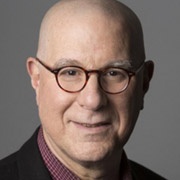
A look at Japan’s evolving intelligence efforts
New book by Richard Samuels examines the past and future of Japanese intelligence services in a rapidly shifting world.
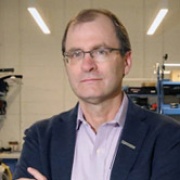
An interdisciplinary approach to accelerating human-machine collaboration
Professor’s startup brings millimeter-scale location tracking to factories, ports, and other industrial environments.
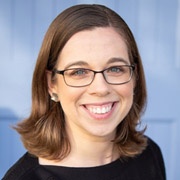
A new act for opera
Emily Richmond Pollock’s book examines creative attempts to refashion postwar opera after Germany’s “Year Zero.”
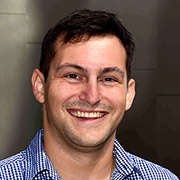
VOICES OF MIT SHASS GRADUATE STUDENTS
Meet Marc Aidinoff, PhD candidate
"What does it mean when civil rights become about access to computers and the Internet? When lack of Internet access is considered a form of poverty? These questions were getting under my skin. I wanted to know how social and economic policy were tied to changing ideas about technology."
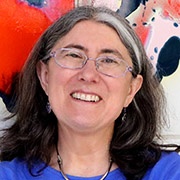
DEMOCRACY
3Q with historian and Russia expert Elizabeth Wood
How do we understand Russia’s multi-layered interference in the 2016 Elections? MIT historian and Russia expert Elizabeth Wood analyzes Russia’s motives.
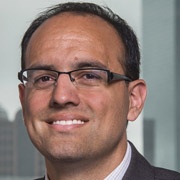
HONORS AND AWARDS
MIT Economist Parag Pathak honored by Science News
Pathak, the Jane Berkowitz Carlton and Dennis William Carlton Professor of Microeconomics at MIT, has been named by Science News as one of 10 early- and mid-career scientists with great potential to shape the future of their field.
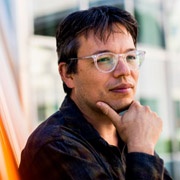
Looking under the surface of politics in Latin America
Associate Professor Danny Hidalgo’s work reveals some difficult truths about money, elections, and political influence.
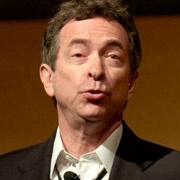
How Christopher Weaver transformed video games and game studies
Weaver revolutionizes video games with physics, design, virtual reality, storytelling, and games for social change.
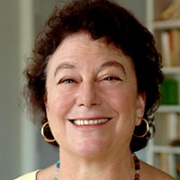
COMPUTING AND AI: HUMANISTIC PERSPECTIVES FROM MIT
Women and Gender Studies | Ruth Perry, Sally Haslanger, Elizabeth Wood
"The Schwarzman College of Computing presents MIT with a unique opportunity to take a leadership role in addressing some of most pressing challenges that have emerged from the ubiquitous role computing technologies now play in our society — including how these technologies are reinforcing and even exacerbating social inequalities."
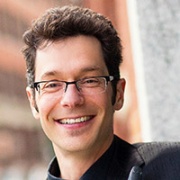
COMPUTING AND AI: HUMANISTIC PERSPECTIVES FROM MIT
Music | Eran Egozy
"Through the MIT Schwarzman College of Computing, our responsibility will be not only to develop the new technologies of music creation, distribution, and interaction, but also to study their cultural implications and define the parameters of a harmonious outcome for all."
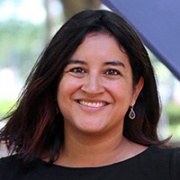
COMPUTING AND AI: HUMANISTIC PERSPECTIVES FROM MIT
Science, Technology, and Society | Eden Medina and Dwai Banerjee
"A more global view of computing would demonstrate a broader range of possibilities than one centered on the American experience, while also illuminating how computer systems can reflect and respond to different needs and systems."
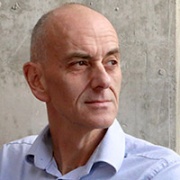
COMPUTING AND AI: HUMANISTIC PERSPECTIVES FROM MIT
Philosophy | Alex Byrne and Tamar Schapiro
“The new College of Computing presents an opportunity for MIT to be an intellectual leader in the ethics of technology. The Ethics Lab we propose could turn this opportunity into reality."
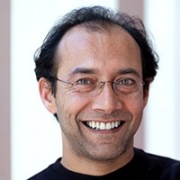
COMPUTING AND AI: HUMANISTIC PERSPECTIVES FROM MIT
Literature | Shankar Raman with Mary C. Fuller
"At least three priorities of current literary engagement with the digital should be integrated into the SCC’s research and curriculum: democratization of knowledge; new modes of and possibilities for knowledge production; and critical analysis of the social conditions governing what can be known and who can know it."
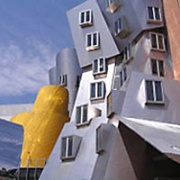
COMPUTING AND AI: HUMANISTIC PERSPECTIVES FROM MIT
Linguistics | Faculty of MIT Linguistics
“Crucially, nearly all transformative new tools have come from researchers at institutions where linguists work side-by-side with computational researchers who are able to translate back and forth between computational properties of linguistic grammars and of other systems.”
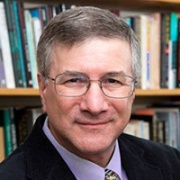
COMPUTING AND AI: HUMANISTIC PERSPECTIVES FROM MIT
History | Jeffrey S. Ravel
"The nuanced debates in which historians engage about causality provide a frame of reference for considering the issues that will inevitably emerge from new computing technologies. We may not be doomed to repeat the past if we do not study it. But we certainly miss an opportunity to imagine our way out of today’s existential threats if we do not appreciate the complexity of past crises."
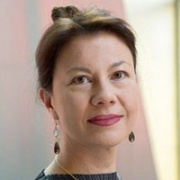
COMPUTING AND AI: HUMANISTIC PERSPECTIVES FROM MIT
Global Languages | Emma Teng, with colleagues
"Language and culture learning is a gateway to international experiences and an important means to develop cross-cultural understanding and sensitivity. Such understanding is essential to addressing the social and ethical implications of the expanding array of technology affecting everyday life across the globe."

COMPUTING AND AI: HUMANISTIC PERSPECTIVES FROM MIT
Comparative Media Studies | William Uricchio
"Given our research and practice focus, the CMS perspective can be a key one for understanding the implications of computation for knowledge and representation, as well as computation’s relationship to the critical process of how knowledge works in culture — the way it is formed, shared, and validated."

COMPUTING AND AI: HUMANISTIC PERSPECTIVES FROM MIT
Political Science | Faculty of the Department
"The advance of computation gives rise to a number of conceptual and normative questions that are political, rather than ethical, in character. Political science and theory have a significant role in addressing such questions as: How do major players in the technology sector seek to legitimate their authority to make decisions that affect us all? And where should that authority actually reside in a democratic polity?"
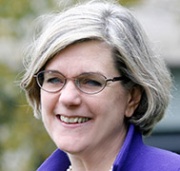
COMPUTING AND AI: HUMANISTIC PERSPECTIVES FROM MIT
Economics | Nancy L. Rose and David Autor
"The affinity between economics and computer science traces back almost a century, to the founding of game theory in 1928. Today, the practical synergies between economics and computer science are flourishing. We outline some of the many opportunities for the two disciplines to engage more deeply through the new MIT Schwarzman College of Computing."
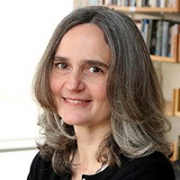
COMPUTING AND AI: HUMANISTIC PERSPECTIVES FROM MIT
Anthropology | Heather Paxson
"Incorporating anthropological thinking into the new College of Computing promises to help students become more effective and responsible coders, designers, and engineers. The study of anthropology can prepare students to live and work effectively and responsibly in a world of technological, demographic, and cultural exchanges."
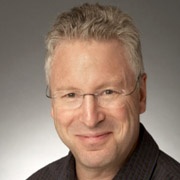
COMPUTING AND AI: HUMANISTIC PERSPECTIVES FROM MIT
Writing | Thomas Levenson
"Computation and its applications in fields that directly affect society cannot be an unexamined good. Professional science and technology writers are a crucial resource for the mission of the SCC, and they need to be embedded within its research apparatus."
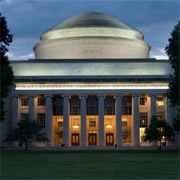
MIT reshapes itself to shape the future
Gift of $350 million establishes the MIT Schwarzman College of Computing, an unprecedented commitment to world-changing breakthroughs and their ethical application. "Faculty in a range of departments have a great deal to gain from new kinds of algorithmic tools," says Melissa Nobles, Kenan Sahin Dean of the School of Humanities, Arts, and Social Sciences, "and a great deal of insight to offer their makers.”
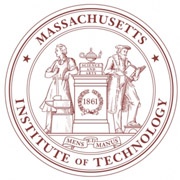
FAQ on the newly established MIT Stephen A. Schwarzman College of Computing
This set of FAQs offers information about the founding of the MIT Stephen A. Schwarzman College of Computing, announced today, and its implications for the MIT community and beyond.

GALLERY | NEWLY TENURED FACULTY 2019
Five MIT SHASS faculty members receive tenure
Dean Melissa Nobles and the School of Humanities, Arts, and Social Sciences are delighted to announce that five members of the MIT SHASS faculty have received tenure. Their extensive research and writing investigates a wide variety of topics, from the history of western thought to electoral behavior in low-income areas.
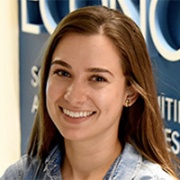
VOICES OF MIT SHASS GRADUATE STUDENTS
Meet Carolyn Stein: MIT Economics PhD student researches the economics of science
"Scientists are often motivated by factors other than wages, but many insights from labor economics still help us understand how the field of science functions."

GALLERY | NEW FACULTY 2019
Seven new faculty members join MIT SHASS
Dean Melissa Nobles and the School of Humanities, Arts, and Social Sciences are pleased to welcome the newest members of the MIT SHASS faculty. They come with diverse and broad research interests, from environmental economics to language formation to the history of the Chernobyl disaster.

MIT Linguistics comparing primate vocalizations
Study shows Old World monkeys combine items in speech — but only two and never more, unlike humans.

DEMOCRACY AND MEDIA
Does cable news shape your views?
MIT Political Science study finds partisan news coverage has a bigger impact on viewers without strong media preferences.
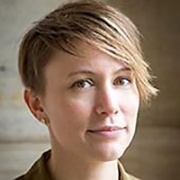
COMPUTING AND AI: HUMANISTIC PERSPECTIVES FROM MIT
Theater Arts | Sara Brown
"As a subject, artificial intelligence (AI) problematizes what is means to be human. There are an unending series of questions posed by the presence of an intelligent machine. The theater, as a synthetic art form that values and exploits liveness, is an ideal place to explore the complex and layered problems posed by AI and advanced computing."
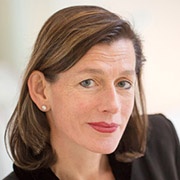
DEMOCRACY AND DISCOURSE
3 Questions: Media historian Heather Hendershot on U.S. political discourse
Media historian and expert on conservatism discusses the current state of political discourse and media in the U.S.
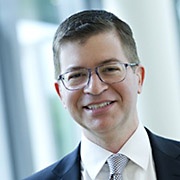
MIT SHASS LEADERSHIP
David Singer named Head of MIT Political Science
“David’s well-deserved reputation for dedication and integrity, as well as his research and teaching focus, and his depth of experience in Institute affairs make him remarkably well suited for this new leadership role.” — Dean Melissa Nobles

DEMOCRACY
MIT launches Election Data and Science Lab
The lab is dedicated to improving elections, using research, evidence, and analysis. Founded by Charles Stewart III, Kenan Sahin Distinguished Professor of Political Science, the Lab will address multiple audiences of academic researchers, election practitioners, and the general public. It will serve a unique and independent role as it applies scientific principles to empirical questions about the administration of American elections.
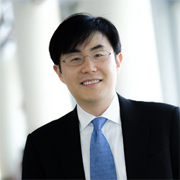
STRENGTHENING DEMOCRACY
3Q: In Song Kim’s LobbyView.org shines a bright light on Washington lobbying
LobbyView.org makes it simple to follow the path of money in politics.
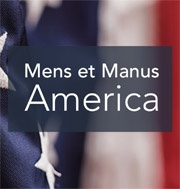
DEMOCRACY
Mens et Manus America Initiative | Portal
This non-partisan MIT initiative convenes research-informed lectures and discussions to explore the major, long-term social, political, and economic issues brought to light in the 2016 US presidential election. We are asking: What can MIT do to help address current challenges in the U.S., and bolster the health of our democracy? Join us as we frame the issues and generate ideas for making a positive impact.
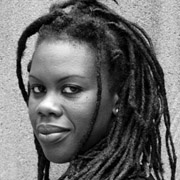
21ST CENTURY CITIZENSHIP
The world as we think the world should be | Meet theater director Charlotte Brathwaite
Charlotte Brathwaite's theater works in response to today's culture of violence violence is inspired by James Baldwin's message of universal love: "If I love you," he said, "I have to make you conscious of the things you do not see."
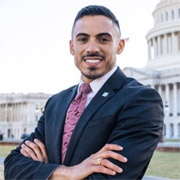
SOCIAL INNOVATION: RESEARCH TO POLICY
Samuel Rodarte '13 | Aero-Astro + Latinx Studies + PoliSci
Shaping Public Policy in the Nation's Capital
With dual MIT degrees in engineering and humanities fields, and a social science minor, Samuel Rodarte '13 could have found a top job in almost any enterprise from startup to multinational corporation. Instead, he chose to join generations of alumni who have put their MIT skills to work shaping public policy in Washington, D.C.
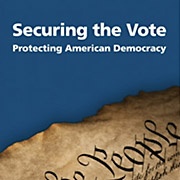
DEMOCRACY
Report outlines keys to securing elections
MIT experts co-author report calling for ballot paper trails and other resilient practices to avoid election hacking.
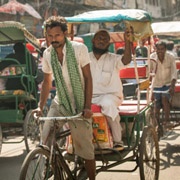
Among India’s working poor, sobriety may boost savings
Economist’s study of rickshaw drivers shows effects of alcohol consumption on financial decision-making.
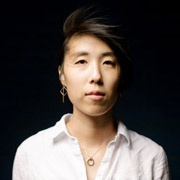
A scholar and teacher re-examines moments in the history of STEM
“I love teaching,” says PhD student Clare Kim. “It’s not that I’m just imparting knowledge, but I want [my students] to develop a critical way of thinking.”

A behavioral economist explores poverty and development
Doctoral student Pierre-Luc Vautrey investigates how incorrect beliefs shape economic decision-making.
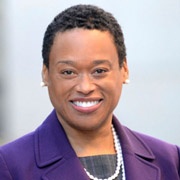
3 Questions: The social implications and responsibilities of computing
In helping envision the MIT Schwarzman College of Computing, working group is focusing on ethical and societal questions.
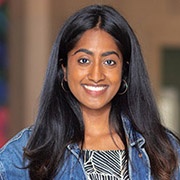
HEALTH AND MEDICINE | PUBLIC HEALTH
Ankita Reddy '19 | Anthropology + Biology
Improving public health
Culturally aware approaches lead to more effective medical interventions.

STUDENT HONORS
76 MIT seniors inducted into the Phi Beta Kappa Society
PBK honors the nation’s most outstanding undergraduate students for excellence in the liberal arts, which include the humanities and the natural and social science fields. Only 10 percent of higher education institutions have PBK chapters, and fewer than 10 percent of students at those institutions are selected for membership.

Merging machine learning, the life sciences, and linguistics
Through computing, senior and Marshall Scholar Anna Sappington seeks answers to biological questions.
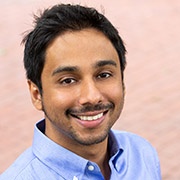
Dwaipayan Banerjee receives 2019 Levitan Prize in the Humanities
$29,500 award will support research for "A Counter History of Computing in India."

3 Questions: Historian/engineer David Mindell on human-centered robotics and bilingual education
David A. Mindell is the Dibner Professor of the History of Engineering and Manufacturing (in MIT-SHASS), a Professor of Aeronautics and Astronautics (in MIT Engineering), and the Co-founder and CEO of Humatics Corporation.
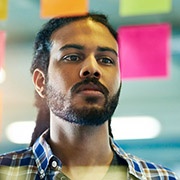
Free, MIT Climate-Related Humanistic Course Materials at MIT OpenCourseWare
Understand and help solve the economic, social, and political dimensions of climate change. Explore climate-related courses from the MIT School of Humanities, Arts, and Social Sciences.
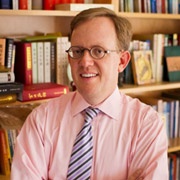
The (evolving) art of war
In new book, political scientist Taylor Fravel uncovers the modern history of Chinese military strategy.
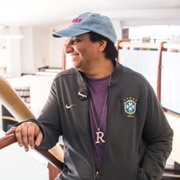
DJ Rekha Malhotra as a cultural curator
Graduate student and New York City DJ draws inspiration from the intersection of art and activism.
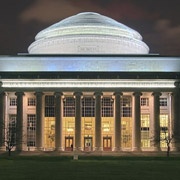
Knight Science Journalism Program at MIT announces 2019-20 fellowship class
Ten top journalists from seven countries will spend an academic year studying at MIT.
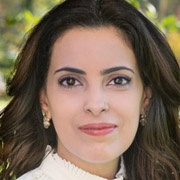
Hala Aldosari joins the MIT Center for International Studies as Wilhelm Fellow
Saudi scholar and activist will conduct research on political and civil reforms in Saudi Arabia.

From science class to the stock exchange
“I’m all about finding connections,” says senior Stephon Henry-Rerrie about his path from engineering to the financial sector.
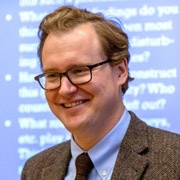
The quest to understand human society scientifically
In STS.047 (Quantifying People), MIT students explore the history of science from the 17th century to the present, through the eyes of statisticians and sociologists.
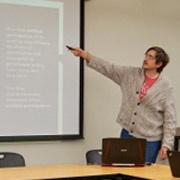
A stage of their own
Presentation workshop for political science graduate students serves as training ground for research and professional skills.
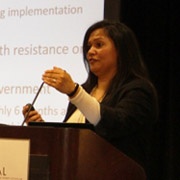
J-PAL North America’s newest initiative explores the work of the future
Nonprofit and industry leaders, researchers, and policymakers gather for a kick-off conference to discuss how to make work more equitable, efficient, and just.
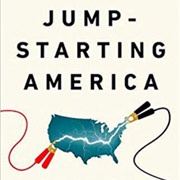
Jump-starting the economy with science
In a new book, MIT professors say more public investment in science will create a better economy for all.
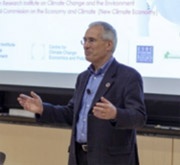
Climate expert emphasizes the fierce urgency of now
In MIT talk, Lord Nicholas Stern calls the next 20 years “absolutely defining” for society.

MISTI-Australia expands horizons, one adventure at a time
Exploring new cultures and conserve the Great Barrier Reef
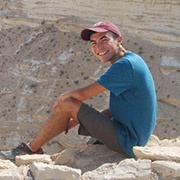
Cornerstone donation sparks bright future for MISTI's MIT-Israel
In the first major step toward solidifying a future for MISTI’s MIT-Israel program, Arthur J. Samberg SB ‘62 has made a 1 million dollar donation. The gift is a foundational move in making sure the program — a critical bridge between MIT and Israel for over a decade — will be able to continue supporting student and faculty work for years to come.
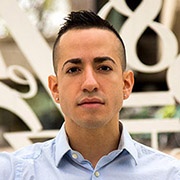
VOICES OF MIT SHASS GRADUATE STUDENTS
Communities in the Cloud
Anthropology PhD student Steven Gonzalez studies the Cloud from within.

HONORS AND AWARDS
2019 Levitan Teaching Award Recipients
Six MIT SHASS faculty members honored for their dedication and passion
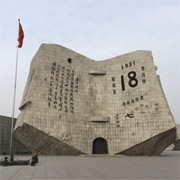
Commerce and coercion
When responding to disputes with foreign powers, China does not speak with one voice, political science doctoral candidate Kacie Miura finds.
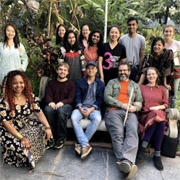
Co-designing assistive technologies in India
MISTI students connect with premier Indian institutes, hospitals, and students to collaborate on “humanistic” assistive design.
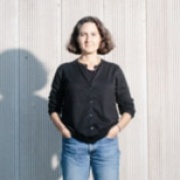
3 Questions: Why are student-athletes amateurs?
MIT Professor Jennifer Light digs into the history of the idea that students aren’t part of the labor force.
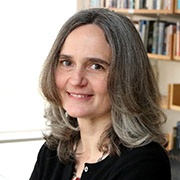
At historic MIT workshop, anthropologists and stakeholders plan a disciplinary model for Open Access publishing
Heather Paxson, interim head of MIT Anthropology, explains the vision and challenges for the emerging plan.
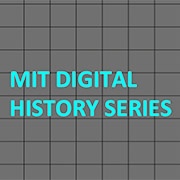
Digital History Seminar Series | Three Presentations
“This seminar series is part of our ongoing exploration of computational methods and digital media for research and teaching in the history field," said Professor Jeffrey Ravel Head of MIT History. Writ large, this new series is a space for us to reflect on our engagement with the new MIT Schwarzman College of Computing."
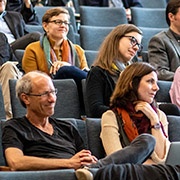
Perspectives | Anthropology Open Access event at MIT
Six participants assess the workshop.
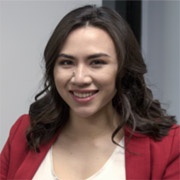
The chemist and the stage
Senior chemistry major, athlete, and artist Audrey Pillsbury creates a musical about life as a second-generation Asian-American.
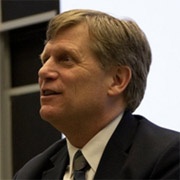
DEMOCRACY | INTERNATIONAL RELATIONSHIPS
After the Cold War, an uncertain peace
In MIT talk, Michael McFaul, former U.S. ambassador to Russia, explores tensions between the two countries.
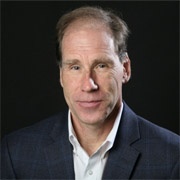
Gulf Stream series wins Knight Science Journalism Program’s Inaugural Victor K. McElheny Award
Award honoring local and regional science journalism will go to a reporting team from the Charleston Post and Courier.
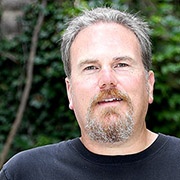
MIT HiSTORY SERIES ON DIGITAL HUMANITIES | 3
Computation and the practice of 21st-century history
In a talk at MIT, Professor William J. Turkel, PhD'04, described the techniques and tools he uses in his study of global21st-century history.
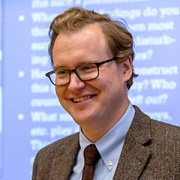
INSIDE THE CLASSROOM
Beyond numbers
In STS.047 ("Quantifying People"), MIT students take a deep dive into data history — focusing on the history of the quest to understand human society scientifically.
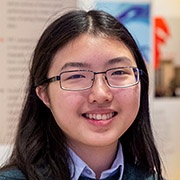
Isabelle de Courtivron Writing Prize Announces 2019 Winners
The judges note that each of this year’s entries is profoundly moving.
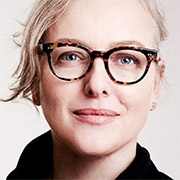
MIT HISTORY SERIES ON DIGITAL HUMANITIES | 2
Digital Zombies and Virtual Reality: Juliette Levy on history in the digital classroom
"Weekly podcasts, a virtual reality experience involving Che Guevara, and a learning game with zombies are among the digital platforms a history professor has used to enhance her teaching and make the subject engaging, especially for large classes of hundreds of students."
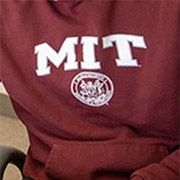
MIT Program in Digital Humanities launched with 1.3M Mellon grant
New lab applies computational tools to humanistic research — and builds a community fluent in both languages.
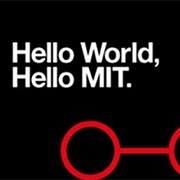
DEMOCRACY | ADVANCED TECHNOLOGY
Video Roundup | Selections from "Hello World, Hello MIT."
A celebration of the MIT Schwarzman College of Computing
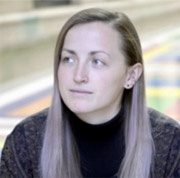
Senior Sarah Tress will tackles poverty with tools from engineering and the humanities
Tress aims to reduce hardships in developing countries using the lens of philosophy.

The Building Blocks of Linguistics
A brisk overview of the field of linguistics; a quiz to make your own personal dialect map; and the top ten ways that linguists contribute to making a better world.
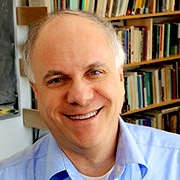
3 Questions: David Pesetsky on the field of linguistics
Solving language puzzles, linguists shed light on deep properties of the human mind, on language acquisition in children, on machine learning, social interactions, and meaning itself. David Pesetsky, an internationally acclaimed linguistic scholar, is the Ferrari P. Ward Professor of Modern Languages and Linguistics at MIT.
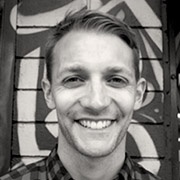
MIT HiSTORY SERIES ON DIGITAL HUMANITIES | 1
Talk by Cameron Blevins launches MIT Digital History Seminar Series
“This seminar series is part of our ongoing exploration of computational methods and digital media for research and teaching in the history field. Writ large, this new series is a space for us to reflect on our engagement with the new MIT Schwarzman College of Computing" — Jeffrey Ravel, head of MIT History
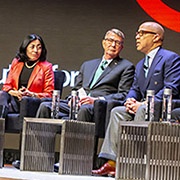
ETHICS, COMPUTING, AND AI
Making the path to ethical, socially beneficial AI
At celebration for the new MIT Schwarzman College of Computing, leaders from government, philanthropy, academia, and industry say collaboration is the key.
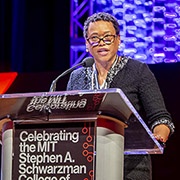
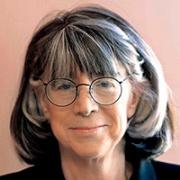
ETHICS, COMPUTING, AND AI
Welcoming Remarks | Susan S. Silbey
Celebration for the MIT Schwarzman College of Computing
28 February 2019
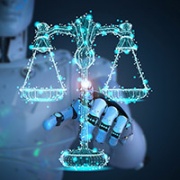
ETHICS, COMPUTING, AND AI | PERSPECTIVES FROM MIT
The Tools of Moral Philosophy | Caspar Hare and Kieran Setiya
"Framing a discussion of the risks of advanced technology entirely in terms of ethics suggests that the problems raised are ones that can and should be solved by individual action. In fact, many of the challenges presented by computer science will prove difficult to address without systemic change.”
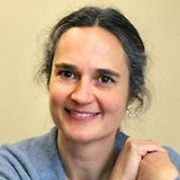
ETHICS, COMPUTING, AND AI | PERSPECTIVES FROM MIT
Computing is Deeply Human | Stefan Helmreich and Healther Paxson
“Computing is not an external force that has an ‘impact’ on society; instead, society is built right into making, programming, and using computers. The computational is political. MIT can make that recognition one of the pillars of its aspiration to help build a better world."
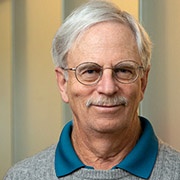
ETHICS, COMPUTING, AND AI | PERSPECTIVES FROM MIT
When Programs Become Unpredictable | John Guttag
“We should look forward to the many good things machine-learning will bring to society. But we should also insist that technologists study the risks and clearly explain them. And society as whole should take responsibility for understanding the risks and for making human-centric choices about how best to use this ever-evolving technology.”
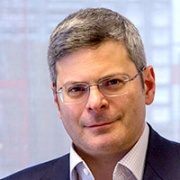
ETHICS, COMPUTING, AND AI | PERSPECTIVES FROM MIT
Safeguarding Our Humanity in the Age of AI | Bernhardt Trout
"To meet the challenge of making AI conducive to a worthy life, we need to think carefully about what is important about human life. The new MIT Schwarzman College of Computing offers us the opportunity to provide an education in varieties of human excellence."
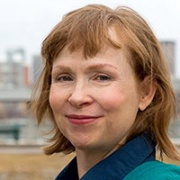
ETHICS, COMPUTING, AND AI | PERSPECTIVES FROM MIT
The Common Ground of Stories | Mary Fuller
“Stories allow us to model interpretive, affective, ethical choices; they also become common ground, conceptual meeting places that can serve to gather very different kinds of interlocutors around a common object. We need these.”
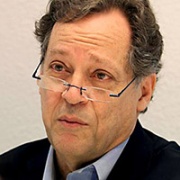
ETHICS, COMPUTING, AND AI | PERSPECTIVES FROM MIT
Who’s Calling the Shots on Data and AI? | Leigh Hafrey
"When the lifeblood of tech companies is user data, we must adopt a full-on stakeholder view of business in society and the individual in business, lest we cede control of our livelihoods, our identity, and life itself.”
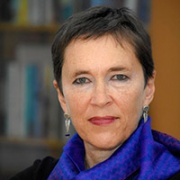
ETHICS, COMPUTING AND AI | PERSPECTIVES FROM MIT
In Praise of Wetware | Caroline A. Jones
“As we enshrine computation as the core of smartness, we would be well advised to think of the complexity of our ‘wet’ cognition, which entails a much more distributed notion of intelligence that goes well beyond the sacred cranium and may not even be bounded by our own skin.”
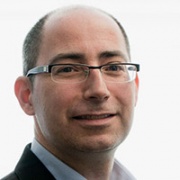
ETHICS, COMPUTING, AND AI | PERSPECTIVES FROM MIT
Blind Spots | David Kaiser
“MIT has a powerful opportunity to lead in the development of new technologies while also leading careful, deliberate, broad-ranging, and ongoing community discussions about the “whys” and 'what ifs,' not just the 'hows.' No group of researchers, flushed with the excitement of learning and building something new, can overcome the limitations of blind spots and momentum alone."
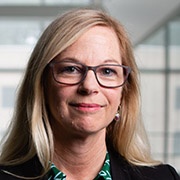
ETHICS, COMPUTING, AND AI | PERSPECTIVES FROM MIT
Addressing the Societal Implications of AI | Lisa Parks
"Given the power of AI tools to impact human behavior and shape planetary conditions, it is vital that a political, economic, and materialist analysis of the technology’s relation to global trade, governance, natural environments, and culture be conducted."
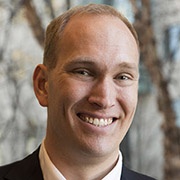
ETHICS, COMPUTING, AND AI | PERSPECTIVES FROM MIT
Clues and Caution for AI from the History of Biomedicine
Robin Wolfe Scheffler
"The very intractability of biology and medicine to computation makes their history an essential counterpoint to more optimistic contemporary discussions of the challenges and opportunities for AI in society. Their past underlines two major points: ‘Quantification is a processes of judgment and evaluation, not simple measurement’ and ‘Prediction is not destiny.’”
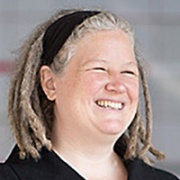
ETHICS, COMPUTING, AND AI | PERSPECTIVES FROM MIT
The Environment for Ethical Actions | T.L. Taylor
"We can cultivate our students as ethical thinkers but if they aren’t working in (or studying in) structures that support advocacy, interventions, and pushing back on proposed processes, they will be stymied. Ethical considerations must include a sociological model that focuses on processes, policies, and structures and not simply individual actors."
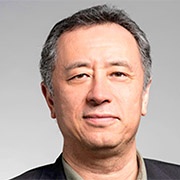
ETHICS, COMPUTING, AND AI | PERSPECTIVES FROM MIT
Biological Intelligence and AI | Matthew A. Wilson
“Understanding how innate morality arises in human intelligence may be an important step in incorporating such a capacity into artificial intelligences.”
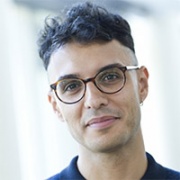
ETHICS, COMPUTING AND AI | PERSPECTIVES FROM MIT
Machine Anxiety | Bernardo Zacka
"To someone who studies bureaucracy, the anxieties surrounding artificial intelligence have an eerily familiar ring. So too does the excitement. For much of the 20th century, bureaucracies were thought to be intelligent machines, with all the positive and negative connotations the term carries."
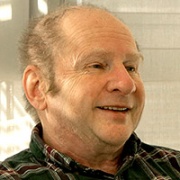
ETHICS, COMPUTING AND AI | PERSPECTIVES FROM MIT
Blending and Bilinguals | Hal Abelson
"When we study society today, we can no longer separate humanities — the study of what’s human — from computing. MIT’s guideline should be President Reif’s goal to 'educate the bilinguals of the future,' experts in many fields who are also skilled in modern computing."
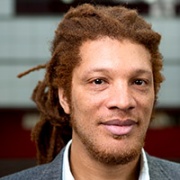
ETHICS, COMPUTING, AND AI | PERSPECTIVES FROM MIT
A Dream of Computing | D. Fox Harrell
"We must be vigilant stewards of the future of computing at MIT. We must reimagine our shared dreams for computing technologies as ones where their potential social and cultural impacts are considered intrinsic to the engineering practices of inventing them."
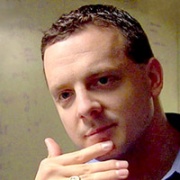
ETHICS, COMPUTING AND AI | PERSPECTIVES FROM MIT
A Network of Practitioners | Nick Montfort
"The new college presents an opportunity for many practitioners of computing at MIT. We should use this chance to build a truly robust network and to make many relevant types of connections."
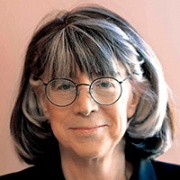
ETHICS, COMPUTING, AND AI | PERSPECTIVES FROM MIT
Two Commentaries | Susan S. Silbey, Chair of the MIT Faculty
Letters from the MIT Faculty Chair on teaching ethics, and on forming the new MIT Stephen A. Schwarzman College of Computing.
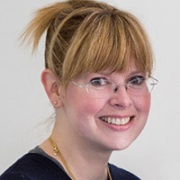
VOICES OF MIT ALUMNI
Abby Everett Jaques, PhD '18, on ethical AI by design
Jaques, an MIT Philosophy postdoctoral associate, is bringing the tools of philosophy to ethical questions related to information technologies.
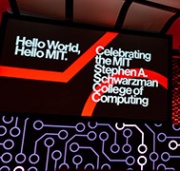
News about the MIT Stephen A. Schwarzman College of Computing
Announcements, Letters, Updates
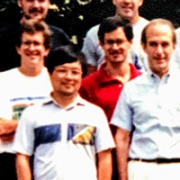
A chemistry postdoc encounters philosophy at MIT
Commentary by Jeffrey H. Toney PhD on studying philosophy with Thomas Kuhn and Sylvain Bromberger
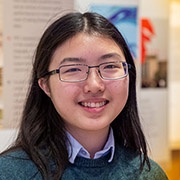
Picturing The Faerie Queene
Ivy Li '20 adapts Edmund Spenser's epic poem into a graphic comic.

Why do we hurt robots?
They are like us, but unlike us, and both fearsome and easy to bully.
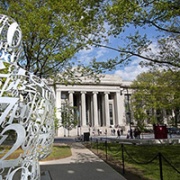
36 MIT students selected as 2019 Burchard Scholars
The School of Humanities, Arts, and Social Sciences is proud to announce the 36 extraordinary sophomores and junior students selected as the 2019 class of Burchard Scholars.
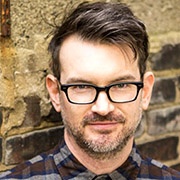
CITIZENSHIP AND THE ARTS
3 Questions with MIT playwright Ken Urban
On theater, science, and the Playwright's Lab
"Understanding others is crucial right now. Of course, understanding is not the same as forgiving or ignoring conflict. But you cannot write convincingly until you care about people who are different from you. That’s what being a playwright has taught me."
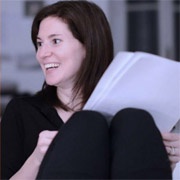
How writing technology shaped classical thinking
Stephanie Frampton’s new book explores the written word in the Roman world.
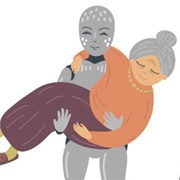
Are home health aides the new Turing Test for AI?
Professor David Mindell asks "What does it mean for a machine to be intelligent?"
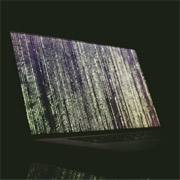
Captivating algorithms: Recommender systems as traps
There is a tendency among these systems’ makers to describe their purpose as ‘hooking’ people – enticing them into frequent or enduring usage.
